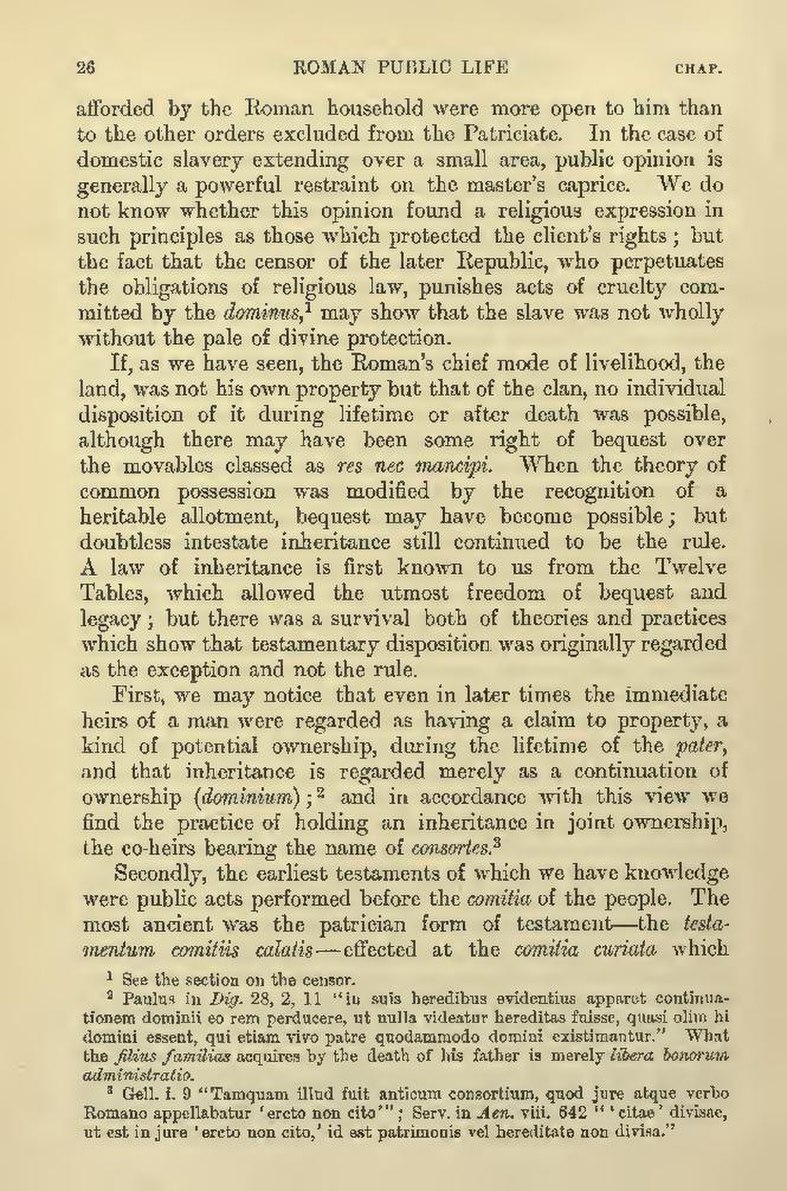afforded by the Roman household were more open to him than to the other orders excluded from the Patriciate. In the case of domestic slavery extending over a small area, public opinion is generally a powerful restraint on the master's caprice. We do not know whether this opinion found a religious expression in such principles as those which protected the client's rights; but the fact that the censor of the later Republic, who perpetuates the obligations of religious law, punishes acts of cruelty committed by the dominus,[1] may show that the slave was not wholly without the pale of divine protection.
If, as we have seen, the Roman's chief mode of livelihood, the land, was not his own property but that of the clan, no individual disposition of it during lifetime or after death was possible, although there may have been some right of bequest over the movables classed as res nec mancipi. When the theory of common possession was modified by the recognition of a heritable allotment, bequest may have become possible; but doubtless intestate inheritance still continued to be the rule. A law of inheritance is first known to us from the Twelve Tables, which allowed the utmost freedom of bequest and legacy; but there was a survival both of theories and practices which show that testamentary disposition was originally regarded as the exception and not the rule.
First, we may notice that even in later times the immediate heirs of a man were regarded as having a claim to property, a kind of potential ownership, during the lifetime of the pater, and that inheritance is regarded merely as a continuation of ownership (dominium);[2] and in accordance with this view we find the practice of holding an inheritance in joint ownership, the co-heirs bearing the name of consortes.[3]
Secondly, the earliest testaments of which we have knowledge were public acts performed before the comitia of the people. The most ancient was the patrician form of testament—the testamentum comitiis calatis—effected at the comitia curiata which
- ↑ See the section on the censor.
- ↑ Paulus in Dig. 28, 2, 11 "in suis heredibus evidentius apparet continuationem dominii eo rem perducere, ut nulla videatur hereditas fuisse, quasi olim hi domini essent, qui etiam vivo patre quodammodo domini existimantur." What the filius familias acquires by the death of his father is merely libera bonorum administratio.
- ↑ Gell. i. 9 "Tamquam illud fuit anticum consortium, quod jure atque verbo Romano appellabatur 'ercto non cito'"; Serv. in Aen. viii. 642 "'citae' divisae, ut est in jure 'ercto non cito,' id est patrimonis vel hereditate non divisa."
